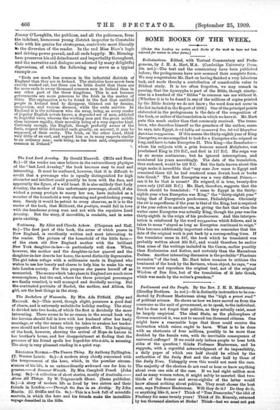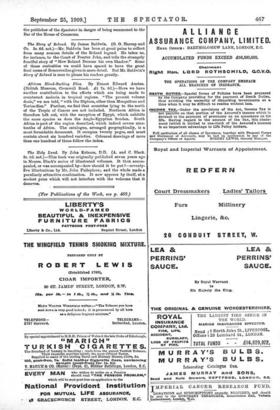Parliament and the People. By the Rev. J. H. B.
Masternasza (Headley Brothers. ls. net.)—It is distinctly instructive to be con- ducted by Professor Masterman along the "high a priori road" of political science. He shows us how we have moved on from the commune as the unit of government, so to speak, to the individual. But he does not forget that politics, as they actually exist, must be largely empirical. The ideal State, as the philosophers of Greece conceived it, was not to exceed ten thousand citizens. One might have a reasonable hope that these could receive the instruction which rulers ought to have. What is to be done with an electorate of four millions, possibly to be more than doubled by the female vote, with its inevitable consequence of universal suffrage? If we could only induce people to hear both sides of the question ! thinks Professor Masterman, and he suggests, with a regretful acknowledgment of its impossibility, a daily paper of which one half should be edited by the authorities of the Daily Mail and the other half by those of the Daily News. Unhappily even this would not meet the case. The majority of the electors do not read or hear or know anything about even one side of the case. If we had eight million men and as many women voters, it might safely be asserted that two- thirds of the former and seven-eighths of the latter would know almost nothing about politics. They must choose the best men, says Professor Masterman. Will they do it? Do they do it, or anything like it, now ? Think of " Tom Duneombe," the idol of Finsbury for some twenty years! Think of Dr. Kenealy, returned by ten thousand electors at Stoke! Think—but we must not put the publisher of the Spectator in danger of being summoned to the Bar of the House of Commons.











































 Previous page
Previous page